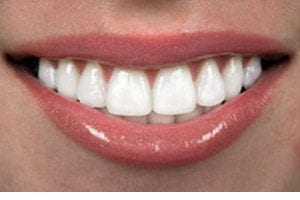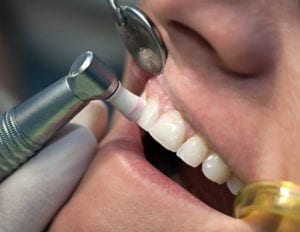A tooth’s enamel, the outermost layer of each tooth, is one of the hardest, most mineralized parts of the body. This visible area of the tooth forms a barrier to protect the sensitive, inner layers of teeth from decay.
Enamel Is Not Indestructible
 While everyone’s mouth has bacteria, when bacteria interact with sugars it triggers an increase in the bacteria’s acid. This bacteria biofilm acid is a threat to enamel and starts the process of decay and cavities. Enamel doesn’t contain living cells and, unlike bones, the body can’t make more enamel if it is destroyed.
While everyone’s mouth has bacteria, when bacteria interact with sugars it triggers an increase in the bacteria’s acid. This bacteria biofilm acid is a threat to enamel and starts the process of decay and cavities. Enamel doesn’t contain living cells and, unlike bones, the body can’t make more enamel if it is destroyed.
Demineralization is caused when the bacteria creates acid that then attacks the enamel of teeth, resulting in decay and cavities.
Remineralization Is Natural
Tooth remineralization is an organic process that works to help repair enamel before a cavity forms. While the acids, triggered by sugars we eat and drink, try to erode the tooth’s enamel, our saliva works equally hard to neutralize the acid.
If the acid can be neutralized by saliva, the remaining minerals, such as calcium and phosphate, can return to the enamel surface. Decay accelerates, however, when sugars enter the mouth too frequently, and the saliva just can’t keep up.
Remedies for Remineralization
 Demineralization and remineralization are processes our mouth goes through every day. But, we can help our mouths become healthier and create an environment to minimize demineralization and help remineralization!
Demineralization and remineralization are processes our mouth goes through every day. But, we can help our mouths become healthier and create an environment to minimize demineralization and help remineralization!
- Help keep plaque bacteria away: Good oral health habits include brushing your teeth twice a day for two minutes and flossing each day.
- Use fluoride toothpaste: Toothpaste with fluoride helps strengthen teeth and can be useful in remineralization of teeth.
- Cut down on sugars: Strive to cut down on all sugars you are eating and drinking. Beyond the obvious sodas and candy, learn to look at processed food labels and avoid consuming sugary bread, crackers, cereal and more.
- Increase natural foods: Add foods that are rich in vitamins and minerals to your diet to help remineralization! Look for cheese, eggs, fish, dark leafy vegetables, apples, and more.
- Add vital vitamins: Increasing intake of vitamin D has shown to prevent tooth decay. Consider about adding a vitamin D supplement to your diet. Also, aim for eating foods rich in vitamin K2, like tuna, salmon, and cheese, which help the body absorb vitamin D.
